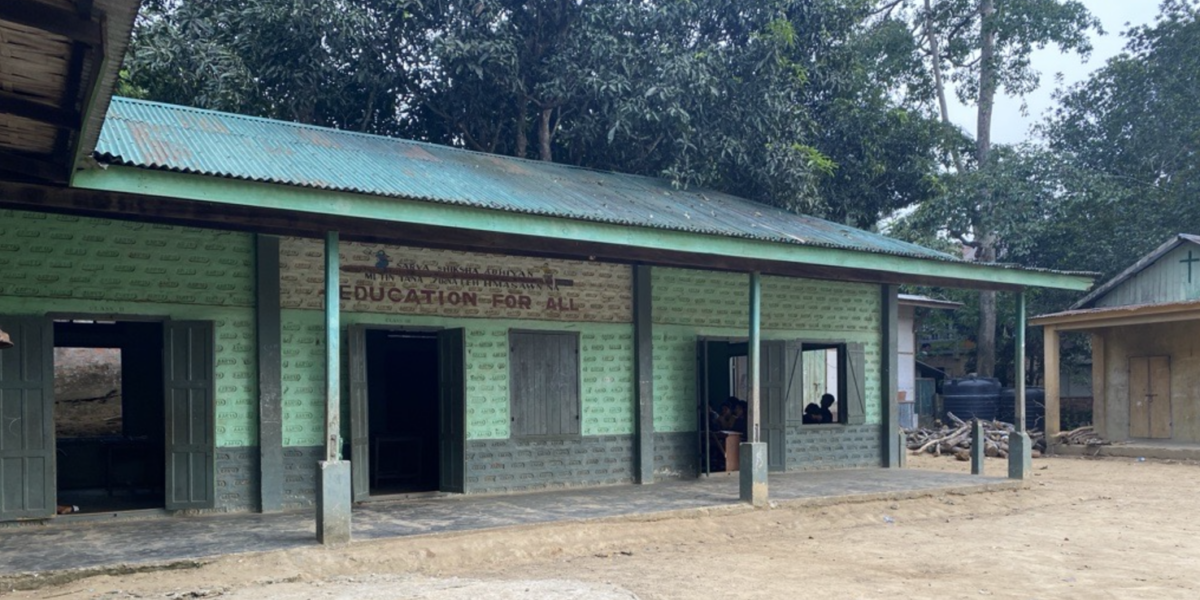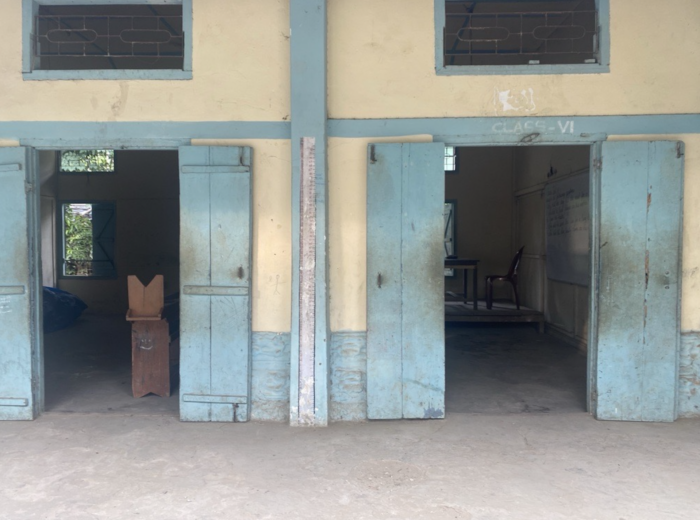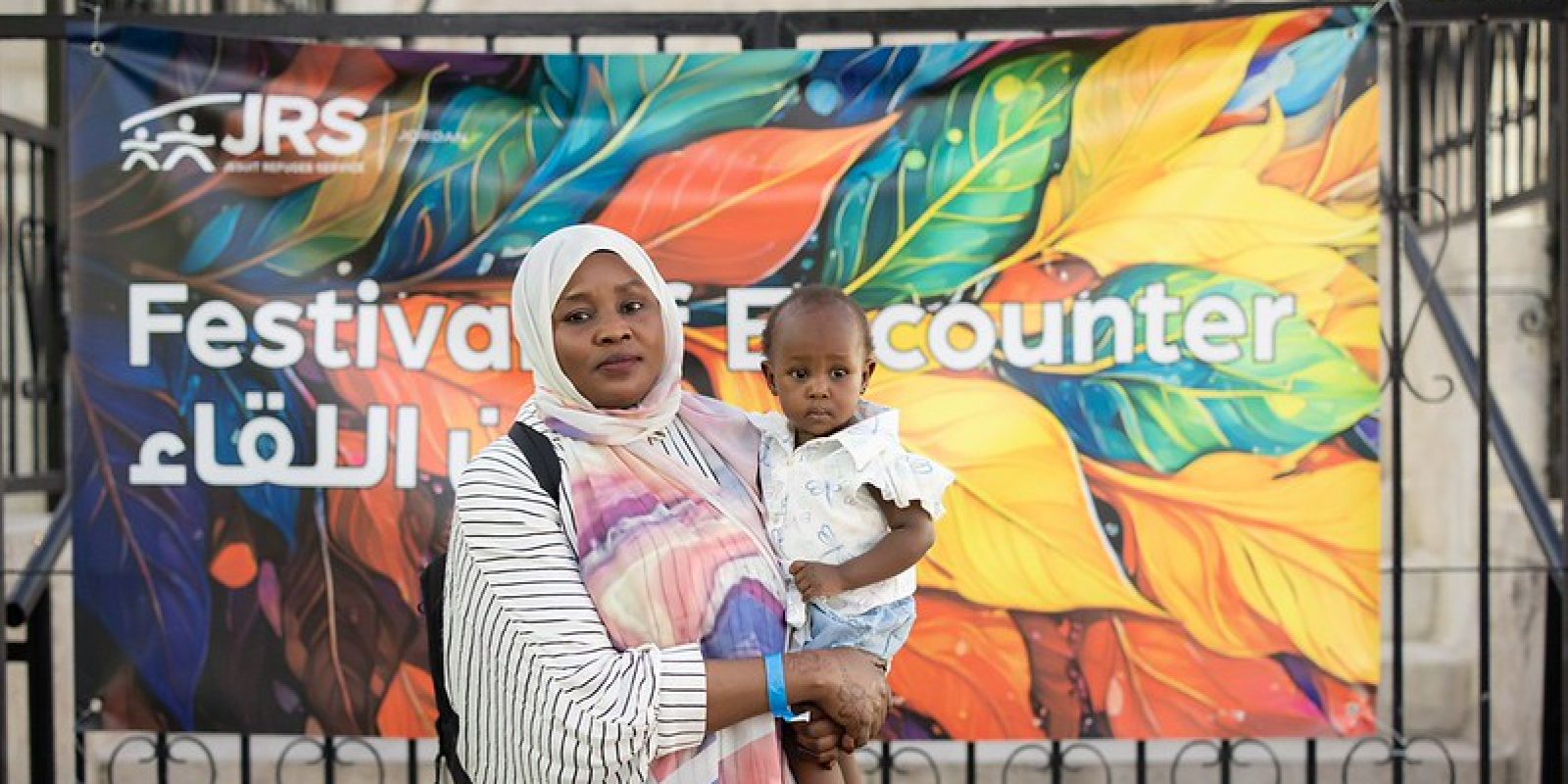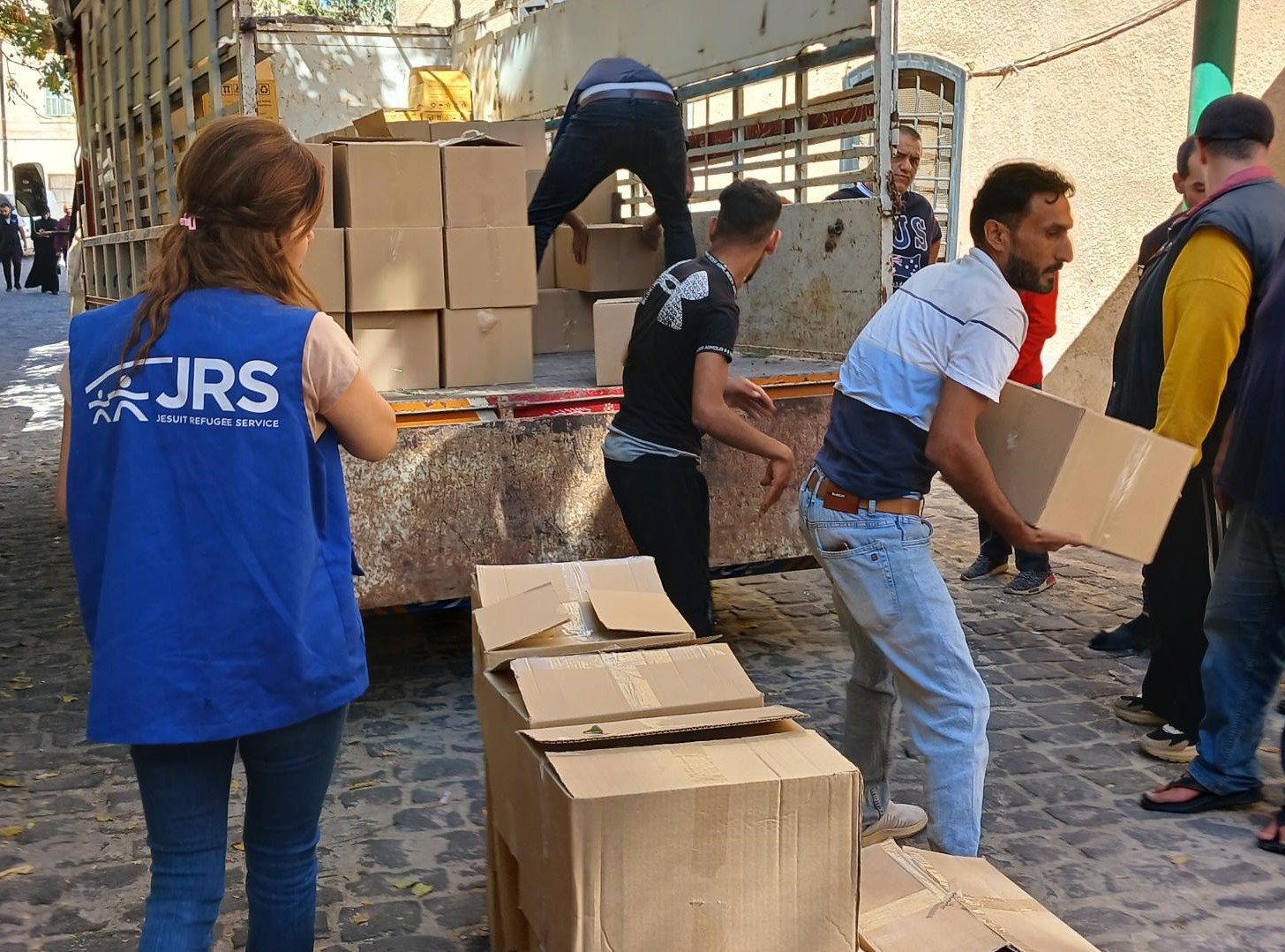JRS India and State PRM: Empowering Communities in Northeast India through Education and Psychosocial Support
08 January 2025|Chloe Gunther

In Northeast India, the state of Manipur lies nestled along the Indo-Myanmar border, its landscape shaped by the Manipur River Valley and the cold surrounding mountains. Just south of Manipur is Mizoram, which also shares a border with Myanmar. Across these two states, Jesuit Refugee Service (JRS) assists people of concern (PoCs) from Myanmar, Afghanistan, and Sri Lanka, offering education initiatives, psychosocial support, and social cohesion programs that foster dialogue and cultural understanding.
Those fleeing violence and discrimination face immense challenges, from securing necessities like shelter, food, and water, to coping with the psychosocial stressors of displacement.
In the face of all these challenges, the JRS India team is committed to their mission, providing critical support and fostering hope for PoC communities. This vital work is made possible through the generous support of the US State Department’s Bureau of Population, Refugees, and Migration (PRM).

Due to the sensitive nature of the PoCs’ situations and the need to protect anonymity, photography is prohibited, but members of the JRS India team sat down with us to talk about their work and its lasting impact.
Fr. Steve, the project director for the Northeast division of JRS India, reflects on the team’s mission and the resilience of the people they serve. “They are not here because they want to be,” he shared. “They have no one else. To bring even a small smile to their faces, to contribute something to their family-it is wonderful.”
The PoC communities are often transient, moving on to the next stage of their journey as quickly as they arrive. The JRS team has adapted its approach to make the most of these brief interactions, building relationships and making positive changes within the limited time.
JRS India focuses on holistic care, addressing every facet of students’ experiences. Their programs include supplemental tutoring to complement formal schooling, teacher training initiatives to equip educators to support the psychosocial needs of students through play and basic psychosocial skills, and positive parenting workshops that empower parents to better nurture and understand their children’s education. The trust and connections built within the community and with the JRS team are a testament to the programs impact and import; students frequently return to the community center during holiday breaks to spend time with friends and staff, finding peace in the safe space JRS has created.
One young girl shared how JRS’s programs have changed her perspective: “When I get home, I have to act like an adult, but at JRS, I feel like I can be a child again.”
JRS India is particularly focused on mental health and psychosocial support (MHPSS), especially given the stigma surrounding it in the many PoC communities. Noel, the Mental MHPSS Coordinator, travels between the field offices in Manipur and Mizoram to support these efforts. This travel, which can take 12 to 18 hours, becomes particularly challenging during the rainy season, with staff and PoCs alike relying on public transportation through mountainous terrain.
Noel highlighted how positive parenting workshops have transformed relationships in the community as parents gain better understanding of how their role affects their children and how important their support is for their children’s education. “When they cannot provide for their children, they experience immense stress and guilt,” Noel explained. The workshops encourage parents to process these emotions and be the best versions of themselves for their children.
One parent shared how the sessions have changed their parenting style and their relationship with their child. “Through positive parenting session I was able to learn how being a parent does not just means fulfilling material needs of my children but accompanying my children in their journey regardless of being educated or having financial stability,” the individual said. “Simply being mindfully present with children and treating them with respect is an important key for happy family.”
In addition to the positive parenting sessions, Noel also conducts regular psychosocial support awareness sessions to both PoC and host communities which help equip both communities with skills to cope with stressors and tools to help each other in distress. This is especially important for the PoC community residing among the host community and who encounter instances of discrimination considering the differences in backgrounds, needs, challenges, and access to services available in the community.

JRS India also facilitates social cohesion programs that foster unity and mutual respect among the PoC and host community students. Known as Connector Peace Sessions, these workshops take place after school in the same classrooms where both groups learn.
Younger children explore themes of unity and diversity through storytelling and art workshops, while adolescents and young adults engage in value-based discussions, role-playing, and self-reflection. Students often examine how figures like Malala Yousafzai or Mahatma Gandhi might address contemporary challenges. “I’ve learned to be at peace with myself and to solve problems through dialogue and building relationships with peers and mentors,” said one PoC student.
“It is inspiring to see such successes from the little steps we can take,” said Theim, the Assistant Project Director at JRS Manipur when responding about how she stays motivated in her work. As part of the social cohesion programs, Theim facilitates a women’s meeting between the PoC community and the host community. After several meetings, the women have created a group chat where they speak in both languages and collaborate on project. One of several success stories throughout the JRS India community.


